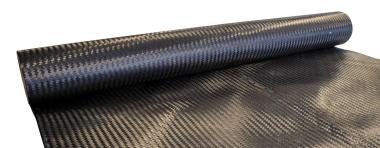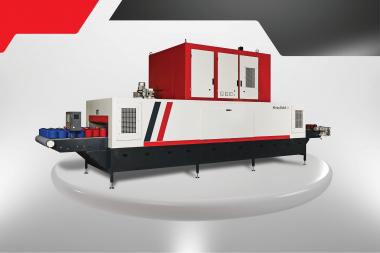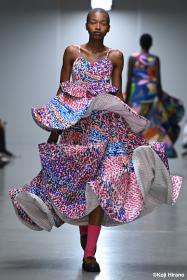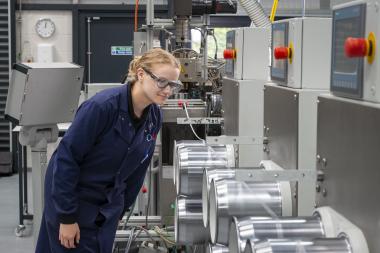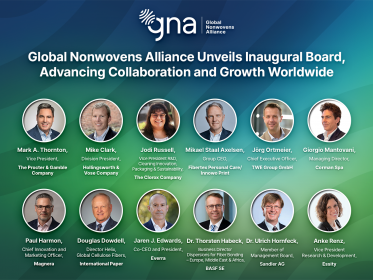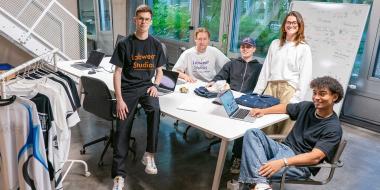Teijin Frontier: New Brand of Sustainable, High-Performance Sheet Insulation Products
Teijin Frontier Co., Ltd., announced the launch of THERMOFRONTTM, a new master brand for sheet insulation that combines environmental responsibility with high thermal performance. The new insulation is comprised of more than 70 percent ECOPETⓇ, Teijin Frontier’s recycled polyester fiber, and incorporates hollow cross-sectional fibers and functional raw materials to deliver outstanding warmth. THERMOFRONTTM insulation is designed for a wide range of applications, from sports and outdoor wear to casual apparel.
In the first phase of this product rollout, Teijin Frontier is introducing three sub-brands: THERMOFRONTTM OA, THERMOFRONTTM SL and THERMOFRONTTM BE. Each offers distinct value-added features such as bulkiness, lightweight comfort and moisture control. Domestic and international sales of these three sub-brands began on October 7. They will be marketed for outdoor, sports and casual wear for the Autumn/Winter 2026 season.
In recent years, as people increasingly enjoy outdoor activities and sports in their daily lives, diversified lifestyles have driven demand for insulated outerwear and sportswear that offers not only warmth and light weight but also bulkiness, softness and comfort across various settings. At the same time, growing environmental awareness among consumers has increased the need for sustainable products. In response, Teijin Frontier developed THERMOFRONTTM high-performance sheet insulation by integrating its expertise in nonwoven fabric design and processing technologies with its long-standing recycling capabilities.
Key features of THERMOFRONTTM insulation
All products under the new THERMOFRONTTM brand share these attributes:
- Environmental responsibility: ECOPETⓇ recycled polyester fiber, more than 70% of component, significantly improves the sustainability of the insulation.
- Enhanced insulation performance: Hollow cross-sectional staple fibers provide superior thermal insulation compared to conventional polyester sheet insulation.
- Maximizing the functionality of combined fibers through Teijin Frontier’s proprietary nonwoven fabric design and sheet processing technologies.
Teijin Frontier





















